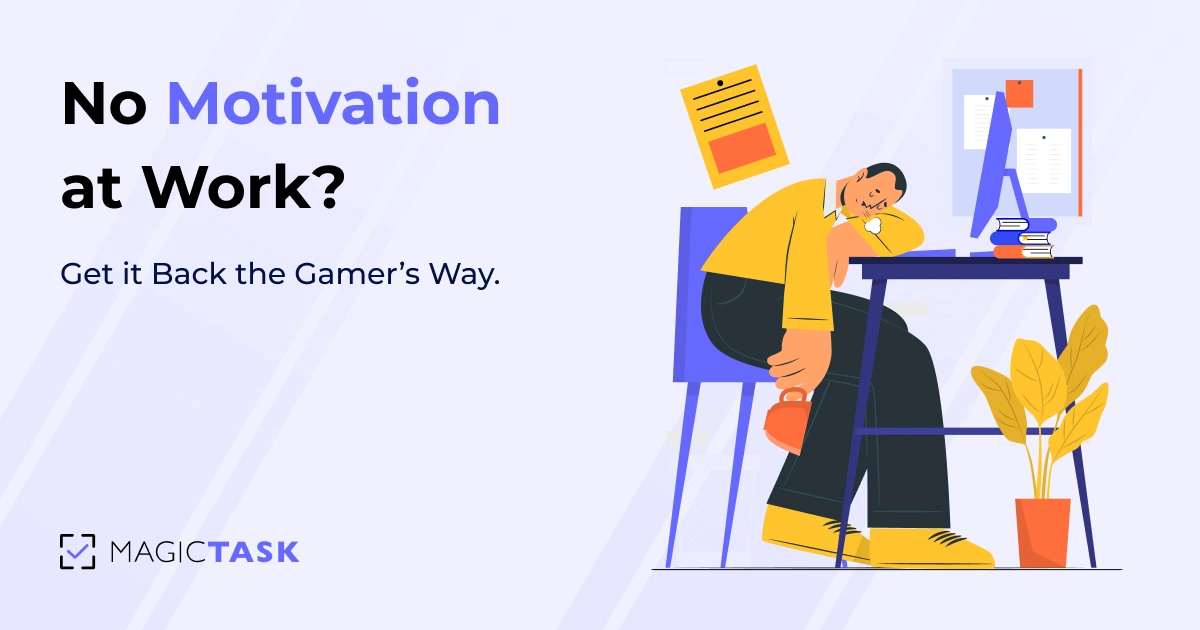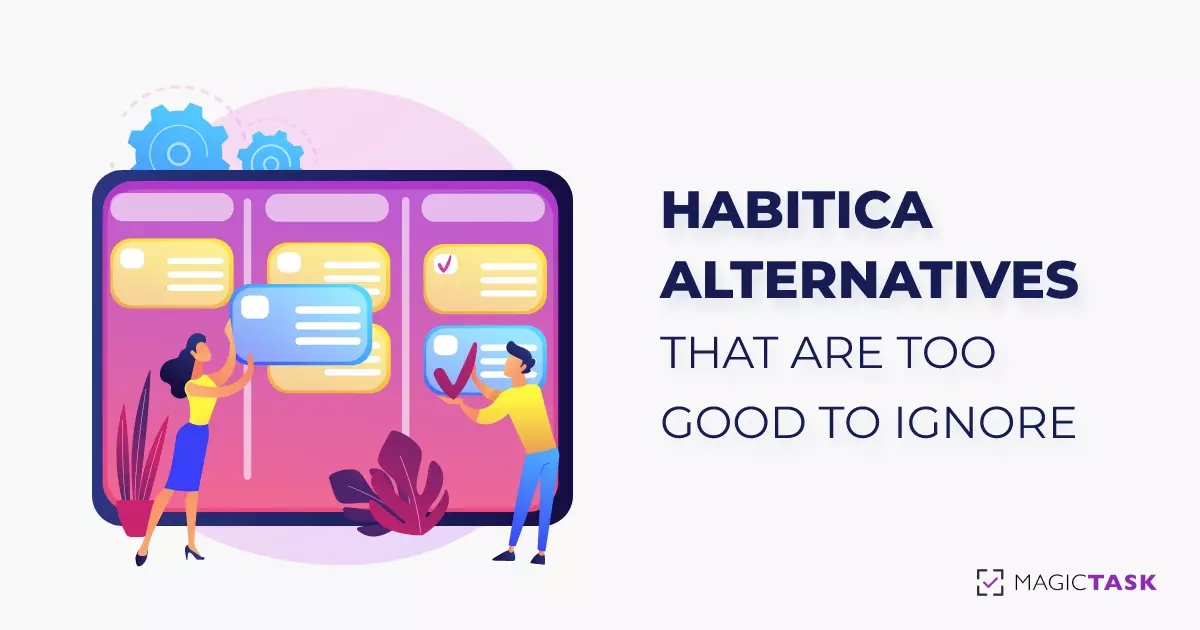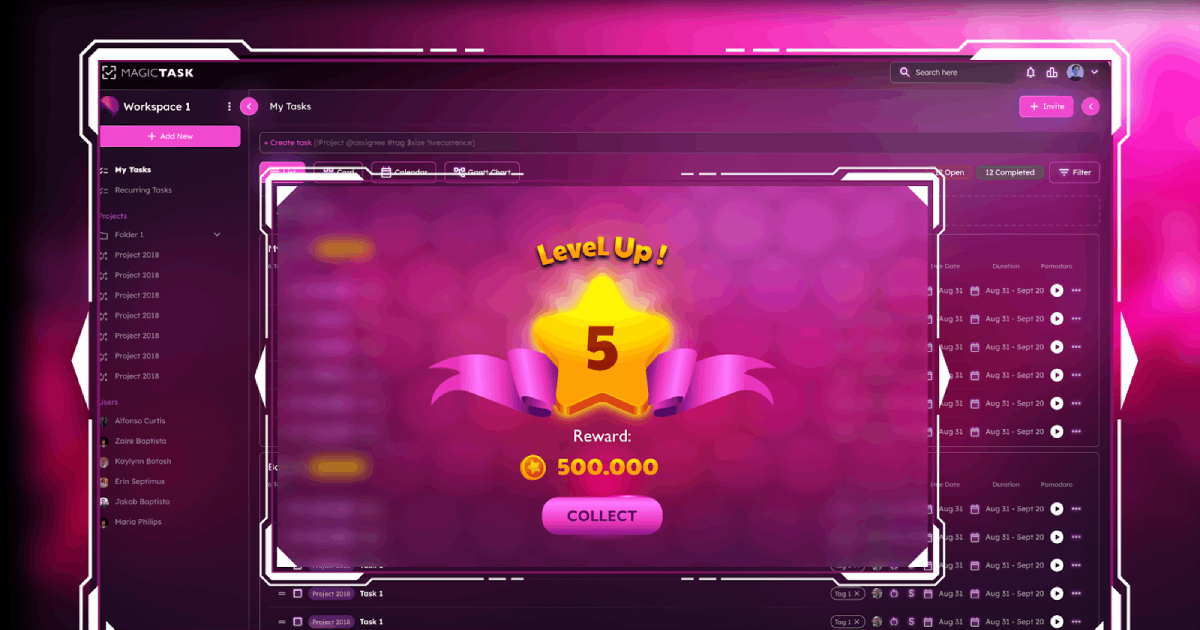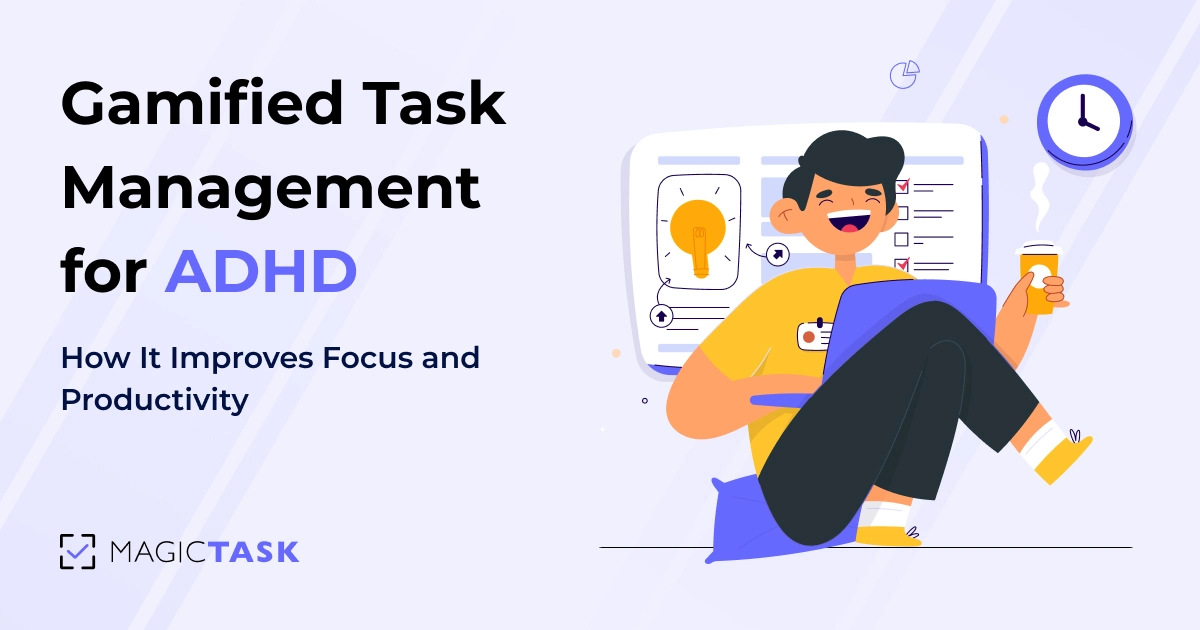10 Powerful and Proven Tips to Manage Your Tasks
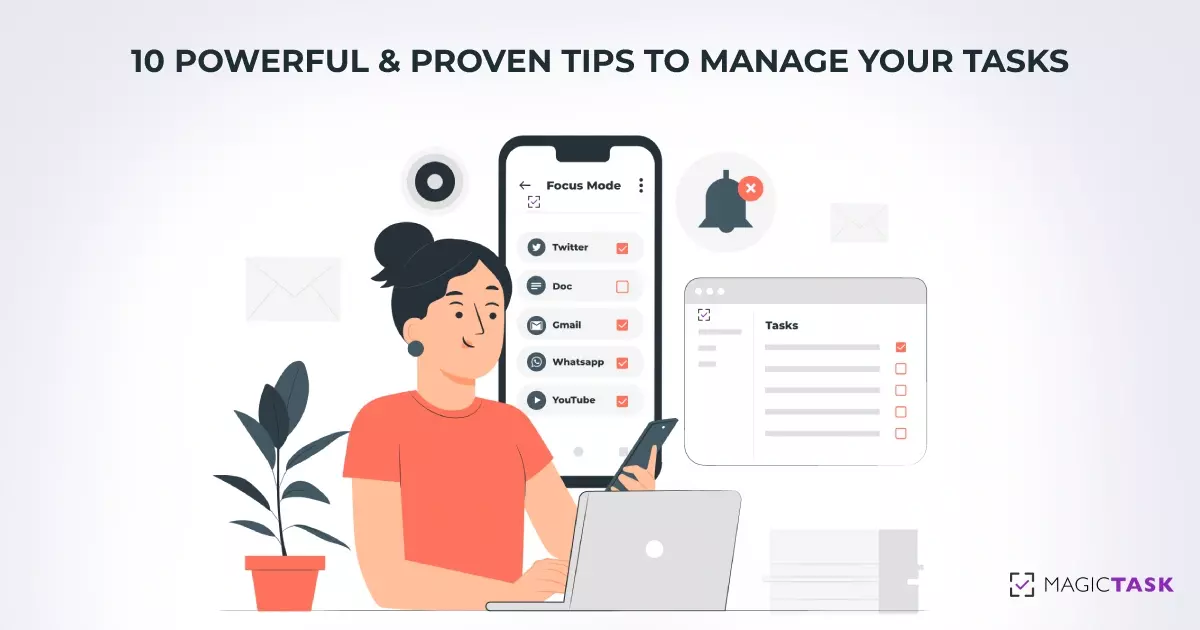
Efficiently managing their tasks is a skill every professional needs and has to develop throughout their career. But task management is more than just completing the assignments on time. It's more than ensuring that the deliverables are up to the requirements.
Effective task management considers the big picture and how small tasks contribute to larger projects. It takes into account how the projects are helping you achieve your long-term goals. In effect, task management comes down to aligning your daily tasks with your visions and goals.
Here are ten powerful tips experts have developed over the years to help you manage your tasks effectively and efficiently.
1. Plan Your Day Well
When you start your day, plan how you'll spend your time. The most effective way to manage your tasks is to not plan them when you're doing them. When you're going through your day, you should be able to check off your assignments one after another. You should avoid thinking about the tasks you have to do when you're in the middle of a job.
If you use a task manager or a more straightforward planner, look at your pending tasks, consider the time you'll have to invest in them, and plan out when you'll be doing them. Check if you have everything you need to do the tasks on your list once you get to them. If you're designing a blog image, ensure you won't have to ask around for details when you get to them. If you're planning to get groceries, see if you have the grocery list prepared.
The irony of not having a clear plan is that you'll be planning throughout the day. At the end of the day, you may also realize that you missed out on some tasks.
2. Prioritize Your Tasks
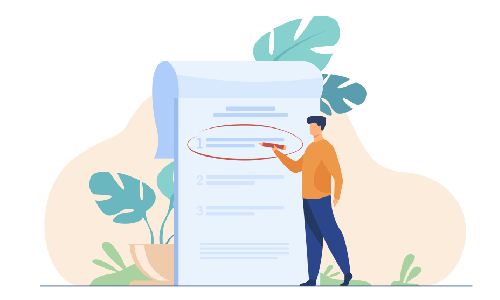
Planning can help keep you on track to a large extent, but even the best-made plans may be disrupted by chance. Your team may assign new tasks to you, an assignment may take longer than you expected, or you may have a personal emergency. Either way, you may have to move your tasks around now and then.
Prioritizing your pending tasks will help you do this quickly. If you face any delays, you can quickly decide which tasks you can do later. When planning your day or week, look at your pending assignments and mark them from high to low priority.
It may appear as if you can do this on the fly. If you're interrupted by a new task or an emergency, you can just look at your pending tasks and decide which ones you can push for the next day or week. This approach is necessary; you need some flexibility around your plans. But with this, you won't be able to consider your goals. You would end up prioritizing tasks based on their deadlines without taking your long-term goals into account.
3. Set Clear Deliverables and Deadlines
While planning your tasks, describe precisely the end results or deliverables and set deadlines for them. The popular productivity method GTD or 'Getting Things Done' suggest practitioners clearly define the next step or action to complete a given task along with the deliverables.
With this approach, you'll have a clear idea of how to get started or tackle a task when you get to it. You won't have to spend time asking your colleagues or clients for more details or clarification. You can just do the task and check them off your list.
The idea is to streamline your tasks. When you're working on an assignment and know exactly what's expected, you won't have to interrupt yourself.
For example, picture you're writing a section of a book. If you don't know what's expected in that section, you'll have to keep going back to the team for their assistance. Instead, if you have a clear outline and a set of references, you can just get to writing it.
4. Focus on One Thing at a Time
At some point in our lives, we've all tried to do at least two different things simultaneously. It could be listening to a podcast while doing the dishes or tackling other tasks while stuck in a meeting. While it may appear to be more productive doing many things at once, odds are you'll be taking more time than if you were to do them one after another.
As much as we'd like to claim otherwise on our resumes, human brains are not good at multitasking or parallel processing. Just try watching a movie and holding a conversation at the same time.
But even if we don't plan on it, we sometimes end up doing multiple things at the same time. We may be thinking about our to-do list while creating a budget report or weekend plans while working on a website UI on a Friday afternoon.
To complete your tasks efficiently, focus on just one task and put all your energy into it. If you find your mind wandering, take a short break and write down whatever is in your head.
5. Build a Distraction-free Environment

The definition of a distraction-free environment varies among individuals. Some people can work their way through their to-do lists while sitting in a crowded cafe or a bar. And there are others who can't get anything done unless they're alone in their room. Either way, if you're constantly disturbed, you need to find a better environment.
These distractions aren't necessarily just a TV playing loudly in the next room or a toddler throwing a tantrum. This can come from a workplace chat with an intense discussion or your phone buzzing with notifications.
To get through your tasks efficiently:
- Create an environment that won't have you leaving your tasks now and then.
- If you're having too many notifications, deal with them all at once and ignore them when you're working.
- If the notifications aren't important, turn them off when you sit down for work.
6. Make Sure You're Physically Well and Schedule Your Breaks
You can easily track how your ability to finish tasks go down when you're not physically well. If you have a headache or feel sleepy, you won't be able to focus on the task at hand. You may make many mistakes or take too long to complete simple tasks. Being healthy and energetic is key to managing your tasks well.
Even on the days, you have too many tasks to do, make sure you take the time to have your food on time and stay hydrated. Sometimes it may appear as if you're completing many tasks at a stretch, but you may be draining yourself quickly. Keeping track of our energy and focus levels is essential even if we appear to be at our most productive selves.
The Pomodoro technique may be worth exploring if you find yourself drained after going on a productive streak for a few hours. Work for 25 minutes, then take a five-minute break. Consider drinking some water, taking a short walk, and returning to work at the end of the five minutes. Repeat this cycle around four times and then take a more extended 30-minute break. This technique will help you stay in the 'zone' or 'flow' state without getting drained.
7. Use the Right Tech to Reduce Your Cognitive Load
You can't focus on the task at hand when you have too many things in your head. Even if you're thinking about your set of tasks or something related to work, you won't be able to put all your energy into the task at hand.
But the good thing is with the tech we have around us, we don't have to. There are plenty of task management tools, calendars, and reminders around us that can help us reduce our cognitive load. It may be a good idea to consider these gadgets and tools as a secondary brain. If anything in your head is bothering you, add that to your to-do list or task management tool. Once you add them, you can stop worrying about them until you're tackling them. (This is the central theme of the popular task management technique 'GTD' or 'Getting Things Done')
8. Delegate Your Tasks as Needed
Doing all the tasks yourself is not the best way to manage them. If you're working with a team, get their help to complete your tasks and reach your goals.
If you have the habit of micromanaging, you may find it difficult to delegate tasks to someone else. You may be worried if they'll be able to complete them on time or up to your satisfaction. But once you start delegating, you'll realize that you're finishing your tasks much quicker and more efficiently. If you struggle with delegating tasks, try letting go of low-risk tasks and assigning them to someone. Once you get comfortable, you'll be able to trust others with more critical tasks.
Delegating the tasks will help you manage your tasks better and also build a better team. Your team will learn new skills and feel more empowered. They'll be more confident in their abilities and step up in the face of new challenges.
On the other hand, if you don't delegate, they may become too dependent on your assistance and come to you for help on every little thing.
9. Communicate Well With Your Team

Poor communication is bound to slow down your team and make them inefficient. It can produce poor-quality of work or output and can warrant repeated reworks. You must learn to communicate effectively with your team to manage your task efficiently.
While it's important to delegate, you should also ensure that your team understands what's expected of them from each task. You should clearly communicate the deliverables, encourage them to ask questions, and answer them in detail.
The way of communication can also affect how tasks are executed in your team. If the team tends to schedule meetings or call whenever they have questions, it can distract everyone. Try to create a culture of asynchronous communication within your team; if a meeting can be an email, make sure it is.
10. Find a Task Management or Productivity Technique That Works for You
A simple google search is enough to show that there is an abundance of task management tools and techniques out there. Plenty of solutions promise to streamline your tasks and make you and your team more efficient. You'll also find plenty of tips, tricks, and techniques to help you become more productive.
While they all may be effective, what works for someone else may not work for you or your style of approaching tasks. Figure out the tools and approaches that help you finish your tasks efficiently, and ignore the rest.
Don't become less productive by spending time trying to learn the latest productivity technique or tools.
Looking for Solutions to Manage Your Tasks More Efficiently? Check Out MagicTask
MagicTask is a task management system designed for teams and individuals alike. The platform is designed to give users a complete picture of their pending and completed tasks and dive deep into individual assignments. The platform is gamified to bring out the competitive spirit within teams in a fun and exciting way.
And the best part? You and your team can use it for free. Give it a try and manage your tasks better.
